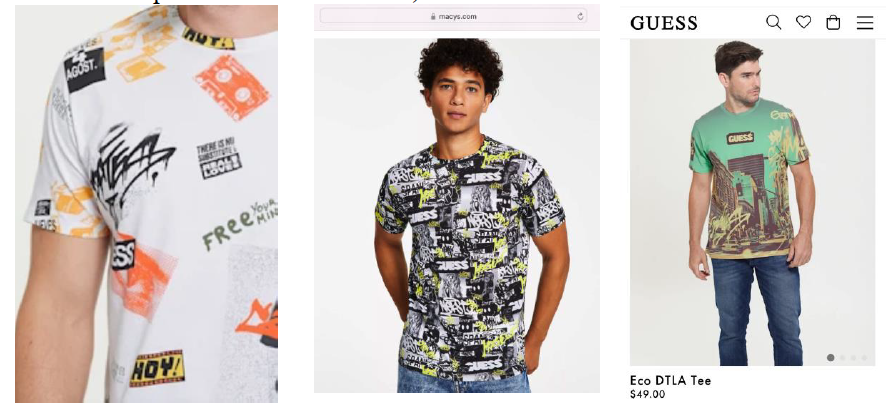Law & Politics
Street Artists Accuse Guess of Using Their Tags in New Lawsuit
The plaintiffs claim the copyright infringement is particularly egregious after Guess was previously called out by Banksy.

The plaintiffs claim the copyright infringement is particularly egregious after Guess was previously called out by Banksy.

Adam Schrader

A lawsuit has been brought against the fashion brand Guess and the department store Macy’s by two graffiti artists alleging copyright infringement.
The claim was filed in a Los Angeles federal court by the Danish artist Robin Ronn, who goes by the professional name Bates, and Patrick Griffin, the brother of the late Sean Griffin. Better known as Nekst, the late Griffin was a groundbreaking and prolific tagger from Houston active in the mid-1990s who went on to join the Mad Society Kings in New York. His untimely death in 2013 was considered a mystery at the time.
According to the court filings, Guess is accused of using the artists’ tags on its clothing designs while Macy’s allegedly benefitted from the sales of the brand’s clothing in its stores.
The lawsuit states that Nekst is universally recognized as a pioneer of street art and “any fan would instantly recognize his tag” while “Bates is not far behind” with his work being featured in books including The History of American Graffiti. These tags have been featured on shirts produced by Guess.
“It’s just mechanical, verbatim reproductions of the actual tags, the actual artist signatures,” Jeff Gluck, a lawyer for the artists told Hyperallergic, which first reported the news.
Griffin and Bates also accused Guess of harming the reputation of the artists by leading the world to think that Nekst and Bates are “corporate sellouts willing to trade their artistic independence, legacy and credibility for a quick buck.”
“Nekst in particular represents a sacrosanct figure that Guess freely defiles,” the lawsuit reads. “During his life, Nekst worked tirelessly to keep his work authentic and artistically unassailable—and he would be turning over in his grave if he could see what is currently on offer from Guess.”
Guess has been in the news in recent years for advertising clothing with “Flower Thrower” graffiti by the anonymous artist Banksy, who then encouraged his fans to shoplift from the store. Griffin and Bates argued that the prior incident with Banksy makes the stealing of their tags particularly egregious.
“Not only does the Banksy incident exactly parallel the plight of the artists in this case—involving misappropriation of street art for use on cheap apparel—the ‘call-out’ by Banksy also further debased Guess’s already negative reputation,” the lawsuit reads.
“Street art is no longer a small or alternative segment of the art world,” lawyers for the artists wrote in a footnote in the complaint. “It is legitimate art, certainly deserving of the customary copyright protection afforded to the visual arts.”
Guess had allegedly continued to sell merchandise with tags by Nekst and Bates despite being hit with a cease-and-desist letter. Both Guess and Macy’s have now seemingly stopped selling the items after the court filing was made. Some of the shirts can still be found on re-sale websites.